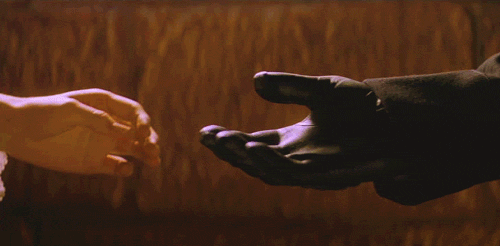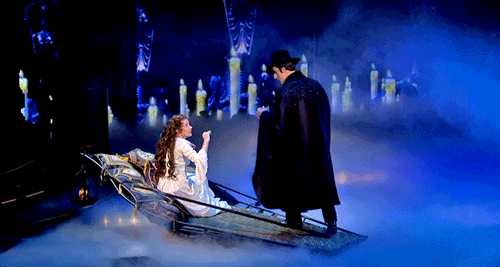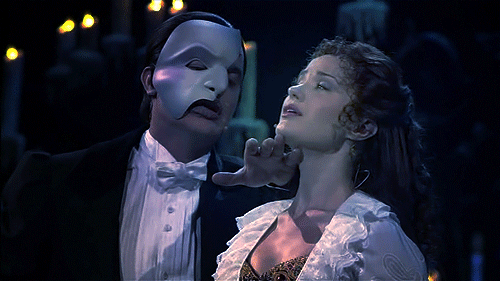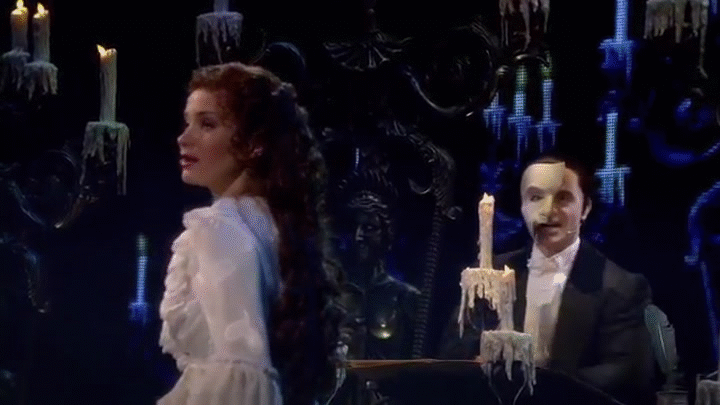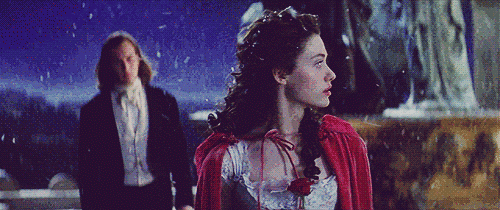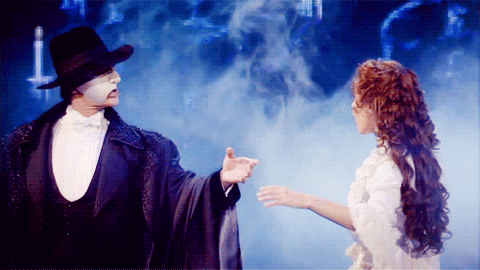On January 26, 2018, "The Phantom of the Opera" will celebrate its 30th year at the Majestic Theatre on Broadway. One might question how the show has been able to stick around for that long. As an avid “phan”, one who has seen the show eight times and counting, I would be totally okay with the show remaining for the rest of time. But back to the question. How has this show lasted 30 years, and has remained a success since its opening? The answer lies within the underlying emotional struggle in the show. The show is a visual manifestation of the internal battle between love and lust, two emotions that can often be confused with the other. The protagonist, Christine Daaé, finds herself in the middle of both love and lust calling for her and must decide which is what she truly desires.
Before the events of the show, The Phantom, disguised as the “Angel of Music” sings to Christine in her dressing room, and teaches her how to sing. This bond is a special one to Christine, as she says in the show, “Father said, ‘When I’m in heaven child, I will send the angel of music to you,’. Father is dead, Raoul, and I have been visited by the angel of music.” (Act One, Scene Three). Christine was heavily devoted to her father, and his passing took an emotional toll on her, which we see throughout the show. However, this supposed “angel of music” is the link to her father that she always wanted. Disguised as the Angel of Music, the Phantom and Christine were both gaining something. The Phantom was becoming closer to Christine, and Christine was keeping her father close by, in a way.
When the Phantom eventually reveals himself to Christine, the level of sexual tension exponentially grows. He seductively takes her through her mirror and leads her past floating candelabras and mist to his underground lair. Musically, the tone of the show shifts dramatically during the song "The Phantom of the Opera." While the songs before were much more accurate to an opera style, the title song of the show is filled with electric guitars and is amped up to a complete rock style. The title song is the only song to be this way and is basically Christine’s sexual awakening.Christine is discovering her sexuality through the Phantom, a key reason why her lust for him is so strong.
All the while, the Phantom has a sense of control over her and is able to make her sing in ways she had never sung before. Once the Phantom begins to sing to her, the experience for Christine becomes purely orgasmic. His voice has this power over her that Christine has never felt before.Through his voice, she is his. Little does Christine know, that through her voice, he is hers.The catch, however, is that the Phantom is in “love” with Christine, or so he thinks. The Phantom truly has known no such form of love in his life, so he could just be sexually attracted to her. Even so, the Phantom claims to be in love with Christine, even designing a wedding dress for her.
The dynamics of the show and the relationship between the Phantom and Christine are challenged once Raoul comes back into the picture.He is Christine’s childhood sweetheart, who has come back to hear her sing. Upon hearing her voice, Raoul instantly falls back in love with her and even asks her to dinner that very night. While her sexual desires for Raoul are far less apparent compared to the Phantom, Christine finds a sense of safety in him. In regards to music, Little Lotte, the song in which Raoul and Christine are reunited for the first time, a violin is evident within the music. This is a nod toward Christine’s father, who was a famous violinist in Europe. The violin allows Christine to feel safe.The violin tells Christine that everything is going to be alright and that she will be okay.
Near the end of act one, Raoul even confesses his love for Christine on the rooftop of the opera house. Christine, who has been frightened by the Phantom’s sudden murderous ways (the hanging of Boquet during the ballet), finds a sense of comfort in the way Raoul loves her and agrees to love him in return. For comfort and stability are the two things Christine wants, and the two things Christine has not had since the passing of her father.
Everything boils down to the Final Lair scene of the show, where Christine quite literally has to choose between her relationship with Raoul and hers with the Phantom. The Phantom obligates Christine to decide between the two, in which she chooses to sacrifice her relationship with Raoul in order to keep him alive. At that moment, Christine gave up her freedom, and life for Raoul’s, illuminating the fact that her love for Raoul was love, not a temporary feeling of lust. When the Phantom lets her go to live her life, she is able to live the happy, free life she had wanted with Raoul. Her lust for the Phantom had not died, but her eyes were widened with realization. Realization of true love.


